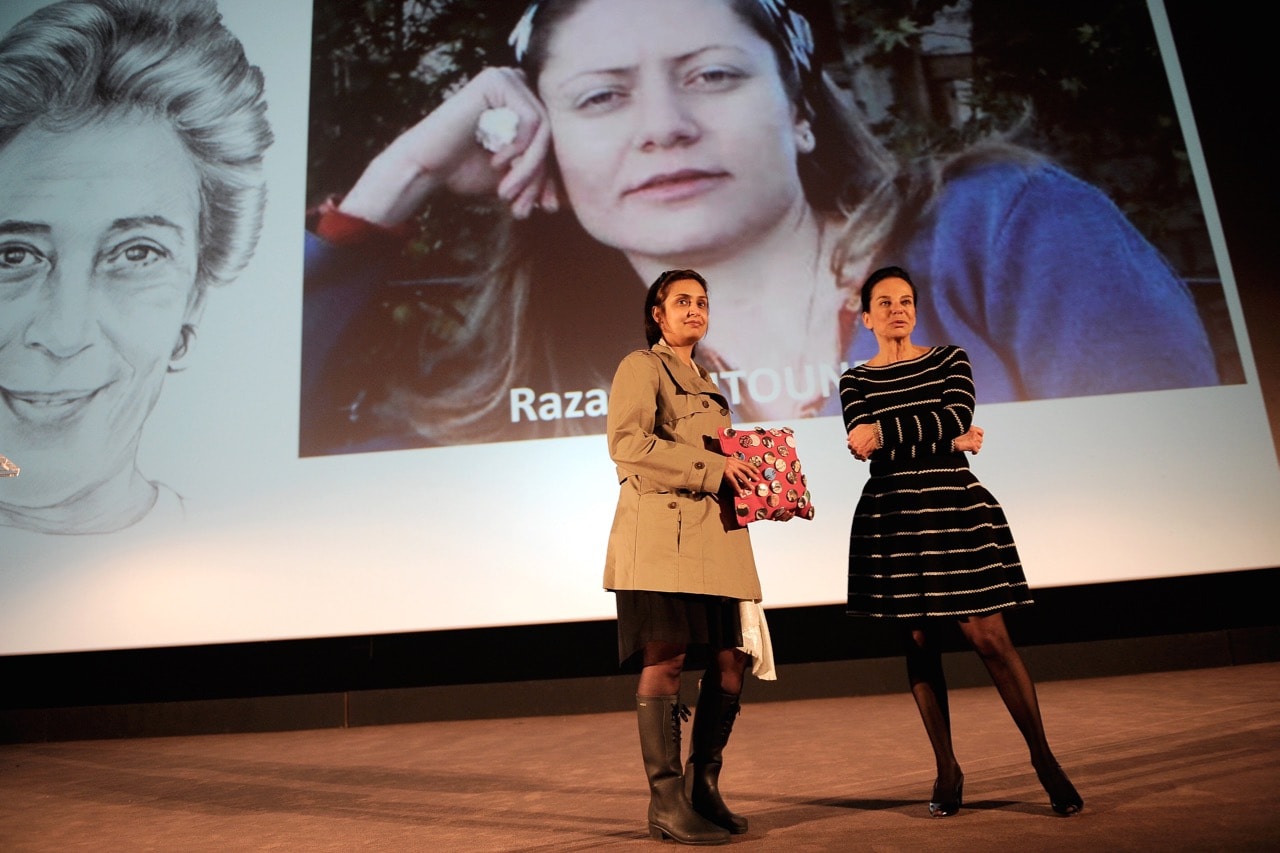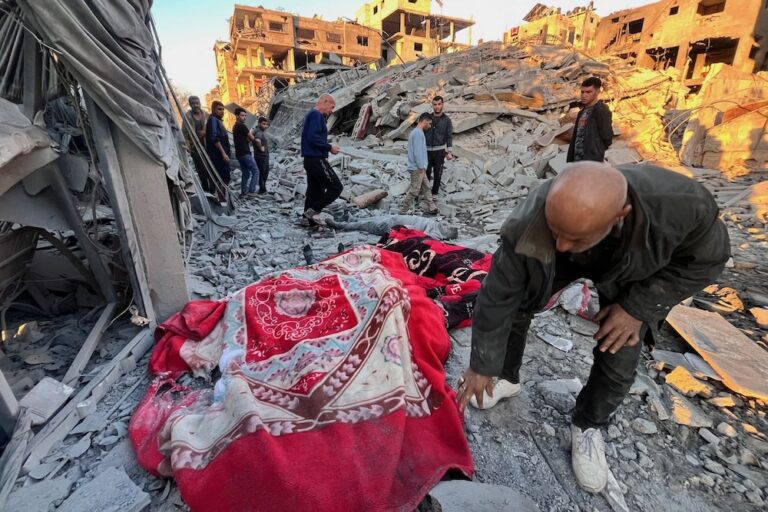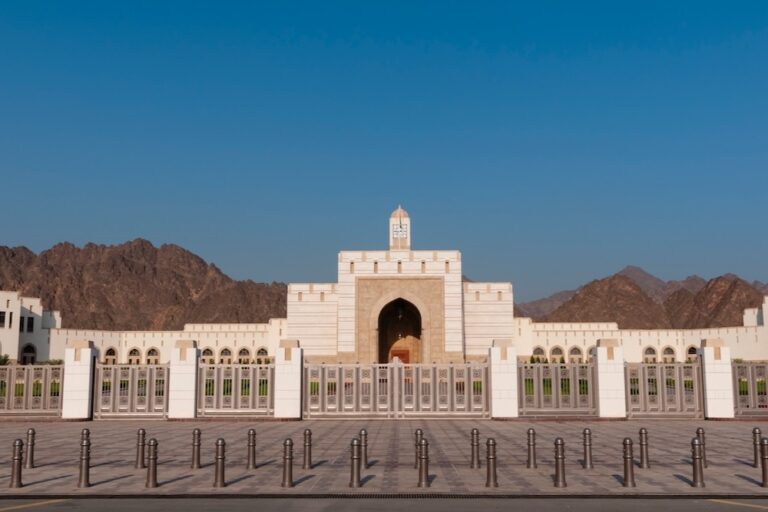Razan Zaitouneh, Bayan Wehan and Nivin Hotary from Syria; Maryam Shariatmadari from Iran; Noha Al-Balawi and Maria Naji from Saudi Arabia, and other women human rights defenders throughout the region are honoured by GCHR as the organisation pledges continued support
This statement was originally published on gc4hr.org on 8 March 2018.
On International Women’s Day, marked annually on 8 March, the Gulf Centre for Human Rights (GCHR) honours Women Human Rights Defenders (WHRDs) in the region and beyond. While remembering those who passed away, we celebrate those who continue the struggle. We stand in solidarity with their efforts while renewing our commitment to provide any possible support to WHRDs in the Gulf region and neighbouring countries to carry out their activism.
In 2018, women all over the world are still demanding their basic rights to equal participation and representation politically, socially and economically. Despite experiencing a severe backlash from state and non-state actors and other components of society, WHRDs and feminist groups and their organisations are becoming stronger. Demanding their rights, challenging stereotypes and raising awareness through physical and online campaigns.
Women continue to be at the forefront of human rights struggles in areas of conflict such as Iraq, Yemen and Syria. They are continuously being subjected to other layers of discrimination, segregation and gender-based targeting to weaken their determination, increase their vulnerability, shake their confidence and threaten their security. However, this has never succeeded in deterring them from defending their rights and the rights of others.
Highlights
In Syria, and precisely from Eastern Ghouta, Razan Zaitouneh, the head of the Violations Documentation Centre in Syria (VDC), winner of the 2011 Sakharov Prize for Freedom of Thought and the 2011 Anna Politkovskaya Award of RAW in WAR (Reach All Women In War), remains enforceably disappeared for the fourth year, along with her three colleagues from VDC, including WHRD Samira Al-Khalil.
However, women in Ghouta are still documenting the human rights situation despite the hostile environment, the dire humanitarian catastrophe they are encountering in the besieged area, mostly from shelters and while facing airstrikes. Bayan Wehan and Nivin Hotary, powerful voices of women from Eastern Ghouta, proved that activism can go beyond the shelter’s wall and that demands for freedom and rights can be very effective to reach out to everyone even from under the rubble. Hotary also posted a video message directed to the UN on 26 February, from what she said was one of Ghouta’s underground shelters: “I want to say that we are civilians. We do not want to leave our homes with our families. We want peace but we still need our freedom.”
In Iran, calling for their rights and freedom of choice, women across the country have been protesting since January 2018 against wearing compulsory Hijab in a symbolic way, by climbing onto telecom boxes, taking off their headscarves and waving them aloft on sticks. 29 Women have been arrested by the Iranian authorities after this protest went viral on social media and was supported by women all over the world. They have been charged with “inciting corruption and prostitution,” which carries a maximum sentence of 10 years in prison. Reports confirms that at least 41 Tehran university students are facing prosecution simply for joining protests in December 2017, for which WHRD Maryam Shariatmadari has been charged with “acting against national security.”
In February 2018, GCHR also supported WHRDs in the Open Stadiums Campaign to attend the international volleyball tournament and advocate for Iranian women’s participation in sports events.
In Saudi Arabia, despite the media propaganda about the dramatic change regarding women’s rights following a series of reforms in the country, that started with granting the women the right to drive, to elect and vote, these changes remain largely cosmetic. In January 2018, at least two WHRDs were arrested for defending women’s rights. Noha Al-Balawi, a college student from Tabuk who is active online in supporting civil and political rights for women, was arrested and her detention was extended on 05 February for another month. There have also been reports that two other Saudi women were arrested, including another university student who advocates for women’s rights. Maria Naji was reportedly arrested when she returned to Saudi Arabia from Egypt, where she had been studying. Her friend was arrested with her.
A report presented by three human rights NGOs including the GCHR to the 69th Session of the Committee on the Elimination of Discrimination Against Women (CEDAW) concludes that there has been insufficient progress on women’s rights in Saudi Arabia. The report found that women’s rights had minimal enhancements and the Saudis need to address the fundamental rights and freedom of women more comprehensively.
In January 2018, GCHR held the Gulf and Neighbouring HRDs Platform, hosting two dozen HRDs, half of them women from across the region. WHRDs attended from Iran, Iraq, Kuwait, Oman, Saudi Arabia, Syria and Yemen, who were able to give their testimonies directly to international NGOs and to Michel Forst, the UN Special Rapporteur on the situation of HRDs. GCHR’s Advisory Board member Dr. Hala Al-Dosari, a prominent women’s rights defender from Saudi Arabia who lives in exile and is unable to travel, also gave a video testimony. She’s the winner of the 2018 Alison Des Forges Award for Extraordinary Activism by Human Rights Watch.
During the platform, WHRDs discussed the recommendation of GCHR’s report, Before It’s Too Late, and mapped the threats facing WHRDs working in the Gulf and neighbouring countries that are more gender specific such as defamation, rape, honor killing, virginity testing and sharia law. The women also had the chance to share their testimonies directly with Forst, to be included in his upcoming report on WHRDs. He noted: “I learned things from women human rights defenders here that I did not hear in other regions, for example that they receive threats from their own families and their friends ask them why they are risking their safety by criticising the authorities.”
Recommendations:
While marking International Women’s Day, GCHR reiterates its calls to enable more protection and support for WHRDs, and would like to:
● Remind the governments in the Gulf region and neighbouring countries, specifically Bahrain, Kuwait, Iran, Iraq, Jordan, Lebanon, Oman, Qatar, Saudi Arabia, the United Arab Emirates, Syria and Yemen, of their international commitment towards women’s rights, eliminating all forms of discrimination against women, and putting an end to violence against women;
● Urge governments in the region and the international community to provide safe spaces and secure environments for WHRDs to work freely and more effectively on human rights issues;
● Reiterate its call to governments to free all WHRDs from detention, prisons, charges and any types of persecution they are subjected to due to their legitimate peaceful activity;
● Renew its commitment to support all WHRDs and their activities in the Gulf region and neighbouring countries, to demand and defend their rights and the rights of everyone; and
● Stand in solidarity with all WHRDs who are striving every day to achieve equality, justice and freedom.



